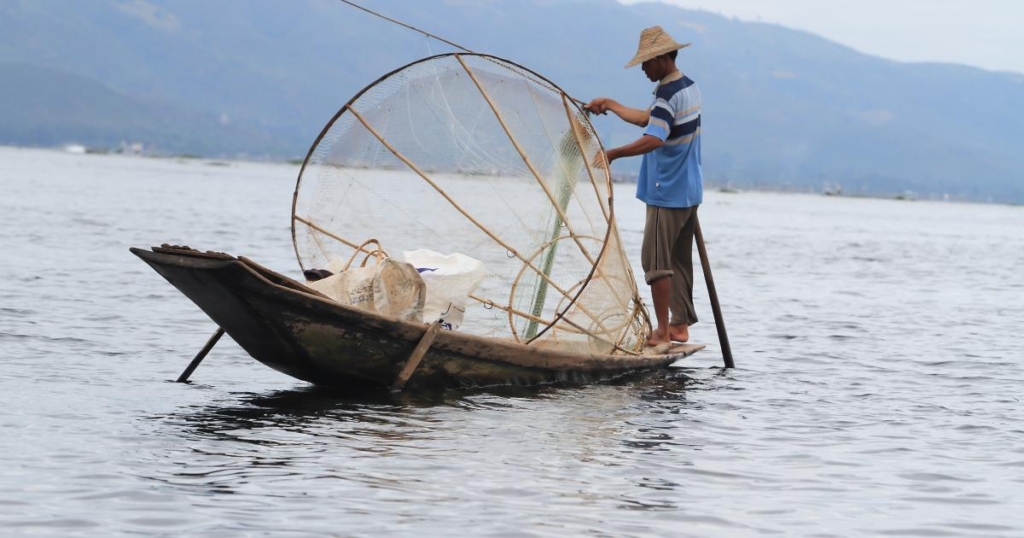October 14, 2021
Handbook on Convention on Biological Diversity (CBD) for small-scale fishing communities
The Handbook has been developed and published by International Collective in Support of Fisherworkers (ICSF) and Centro Internazionale Crocevia (CIC) with the support of SwedBio.
Download
Year of publication: 2021
Pages: 126
Authors: Ramya Rajagopalan
Copy Editor: Sopan Joshi
Editors: Manas Roshan and Stefano Mori
Design: Tushar Menon and Vikram Bhalla
Illustrations: Basim Abu
Citation information: ICSF. 2021. Handbook on Convention on Biological Diversity (CBD) for small-scale fishing communities by Ramya Rajagopalan
ICSF: The Netherlands.
Publisher: International Collective in Support of Fisherworkers (ICSF)
and Centro Internazionale Crocevia (CIC)
Abstract:
Small-scale fisheries contribute to a large percentage of the total capture fish production in the world, especially in developing countries. For hundreds of years, fishing communities have sustainably managed fishery and other natural resources, contributing to global nutrition and food security, as well as to the livelihoods of millions of people dependent on the sector. They are thus essential to sustainable development. Finally in 2014, recognizing the importance of the sector, the Voluntary Guidelines for Securing Sustainable Small-scale Fisheries in the Context of Food Security and Poverty Eradication (the SSF Guidelines), developed through a bottom-up participatory process, was adopted by the FAO Committee on Fisheries (COFI).
These Guidelines recognize that the health of the aquatic ecosystems and its associated biodiversity, are the fundamental basis for the livelihoods of marine and inland fishing communities and contribute to their overall well-being. This makes the Convention on Biological Diversity (CBD) highly relevant to these communities and their fisheries.
The International Planning Committee for Food Sovereignty (IPC) is the world’s largest alliance of small-scale food producers, including peasants, artisanal fisher folks, pastoralists and herders, nomads, indigenous peoples and indigenous organizations, forest dwellers, landless people, urban producers, rural workers. The IPC represents more than 6,000 national organizations and 300 million small-scale food producers. Through this platform, they aim to defend the interests of those who supply 70 per cent of global food production and yet, at the same time, continue to suffer from food insecurity, malnutrition and the non-recognition of their fundamental role in feeding the planet. Those constituencies are represented by specific civil society organizations (CSOs), both regional and global. Together with consumer movements, support NGOs and other grassroots organizations, they aim at advancing the food sovereignty agenda at the global and regional level. The constituency of fisher folks (the IPC working group on fisheries) advocated and made it possible to achieve the SSF Guidelines in 2014. The key role played by the IPC in developing the SSF Guidelines was acknowledged by COFI when, two years later, with the establishment of the FAO SSF Umbrella Programme and the Global Strategic Framework in support of the implementation of the SSF Guidelines (SSF-GSF), the IPC Working Group on Fisheries was identified to act as the SSF-GSF Advisory Group. It is now important that the IPC Working Group on fisheries can mainstream the Guidelines beyond FAO to increase the benefits to the fisheries communities.
Since 2004, fishworker organizations (FWO) have been engaging in national and international processes of the CBD relevant to SSF communities. It is critical that the provisions of the CBD are better understood, especially in the context of the implementation of the SSF Guidelines and the human rights-based approach.
This Handbook developed by ICSF and Crocevia describes the various components of the CBD, and their links to the SSF Guidelines and the Sustainable Development Goals (SDGs). It provides a broad overview of CBD programmes, targets and commitments on aquatic, marine and coastal biodiversity, with illustrative examples and recommended actions for FWOs and civil society.
